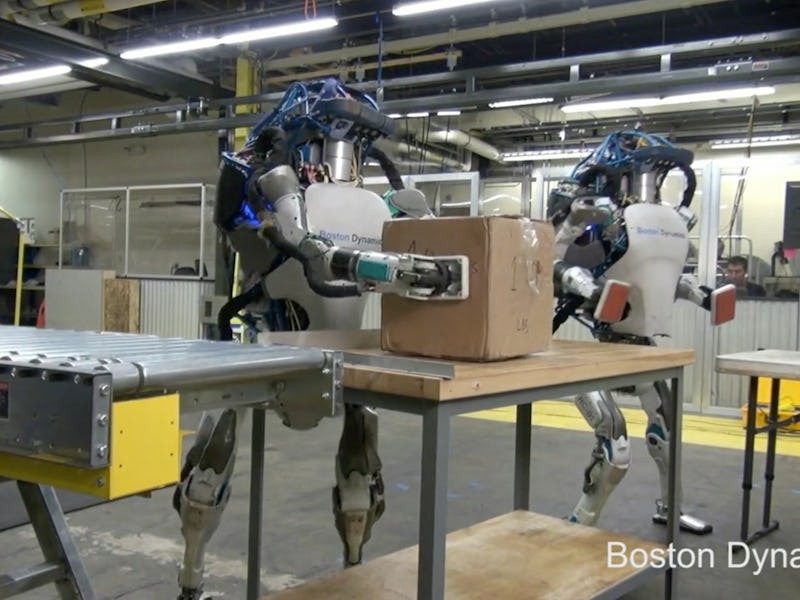
The minimum wage is a controversial economic question, but a new study has found that raising it could have a ripple effect on the economy that would have been hard to predict a few years ago: Robots.
The federal minimum wage is $7.25 an hour, and while some states pay more per hour, there are calls across the land to raise it, with workers citing the difficulty in raising a family on their earnings. But soon those workers may not have jobs to go to, researchers have found.
“Overall we find that minimum wage increases are accelerating the adoption of technology,” Dr. Grace Lordan, a professor at the London School of Economics and one of the study’s authors tells Inverse. “I expect in the future that this will spread to other jobs where people care less about who provides the service and technological advancements are already promising — like delivery drivers, taxi divers, brick layers, bartenders and waiters.”
It doesn't look good for low-wage workers in the future.
Increasing the minimum wage can actually hasten automation job loss. If workplaces have to pay workers more, they’ll be more likely to replace the human workers with robots, which they don’t have to pay at all. Trying to resist or deny the effects of automation is futile, but the findings make clear the outcome, if further provisions to increase the standard of living for low-wage workers aren’t taken.
Industry insiders know this too. In January, Jeff Burnstein, the president of the Association for Advanced Automation told Inverse that Automate, the largest industrial robotics show in North America, has seen an outpouring of support for programs that can help the American worker keep up in an automated age.
A self-serve kiosk at a McDonald's.
Retraining programs are expensive, and it’s unclear whose responsibility it is to pay for them. A New York Times Magazine story in February pointed to the central paradox: companies can’t find workers with the skills they need, and workers can’t find jobs with the skills they have. Both the government and private organizations (Burnstein pointed to Ramtech in Ohio as one example) offer a network of programs to retrain workers, but as NYT Magazine points out, the future of those programs is often tied to political forces like budgets and executive acts, and navigating the redundant or complicated options can be confusing.
In the political world, the Trump administration’s Treasury secretary, Steven Mnuchin, has been both dismissive and accepting of the reality of automation-related job loss (his opponents called him “out of touch”), and with Trump’s deep budget cuts, robot-age job retraining probably won’t make it high up the list of federal priorities.